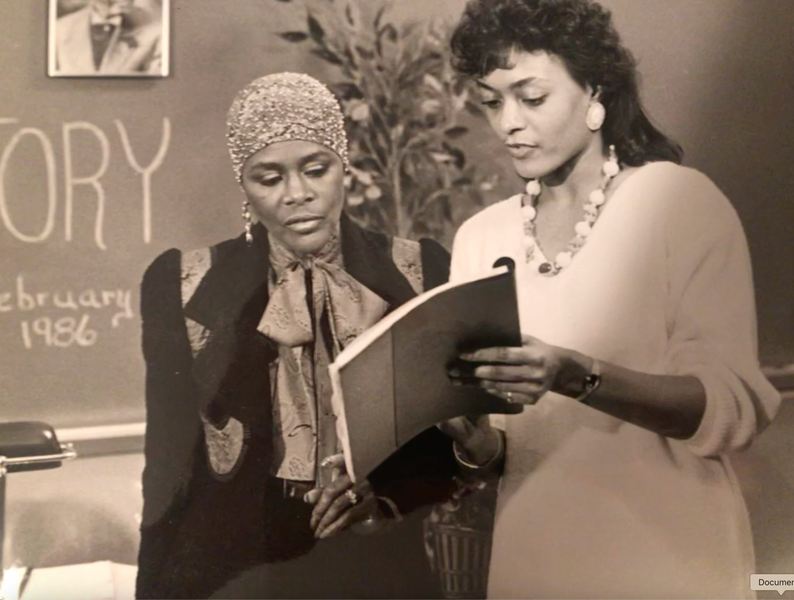Storytelling has long been a powerful tool for marginalized communities, particularly within the Black community, serving as a means of sharing experiences, preserving culture, and advocating for social change. Shirley Neal, an accomplished author, ghostwriter, screenwriter, and producer, has harnessed the art of storytelling throughout her career to amplify Black voices and narratives. Her journey in literature and the entertainment industry highlights the transformative power of stories in empowering individuals and communities.
Early Foundations of Storytelling
Shirley Neal’s interest in storytelling began in her childhood, rooted in her experiences growing up in Cleveland, Ohio. She was deeply influenced by the rich cultural heritage of her community and the stories that emerged from it. Her formal education in storytelling and production, including a Bachelor of Liberal Studies from Boston University and professional certification in ghostwriting from California State University, Long Beach, further solidified her commitment to narrative as a medium of empowerment.
In her early career, Neal engaged in community theatre, where she explored diverse narratives through performances. Working with the Fairmount Theatre of the Deaf, she witnessed the importance of representation and how storytelling could bridge cultural and communicative gaps. These experiences informed her understanding of how stories can be utilized to express identity and foster understanding.
Amplifying Black Voices Through Literature
As a ghostwriter and author, Neal has played a pivotal role in crafting narratives that resonate with Black audiences. Her work encompasses a range of genres, reflecting the complexity of Black experiences. By helping individuals tell their stories, she has contributed to a broader narrative tapestry that highlights the triumphs and struggles of Black lives.
Neal’s commitment to empowering Black voices is evident in her collaborations with authors from various backgrounds. Through ghostwriting, she has helped many individuals articulate their journeys, thereby creating a platform for voices that might otherwise remain unheard. This process not only amplifies personal stories but also enriches the cultural narrative by offering varied perspectives on Black identity.
In her recently published book, AfroCentric Style: A Celebration of Blackness & Identity in Pop Culture, Neal continues this mission. The book explores the ways in which pop culture serves as a lens through which Black identity is expressed and understood. By analyzing music, film, and other cultural artifacts, Neal sheds light on the ongoing dialogue surrounding race and identity in America, emphasizing the significance of representation in shaping societal perceptions.
Storytelling as a Tool for Advocacy
Neal recognizes that storytelling transcends entertainment; it serves as a vital instrument for advocacy and social change. By sharing narratives that address systemic issues, she contributes to a larger movement seeking justice and equality for Black individuals. Through her work in television and film production, she has been involved in projects that highlight critical social issues affecting the Black community, ranging from racial discrimination to cultural appropriation.
One notable example is her involvement in the BET special dedicated to Stanley Tookie Williams, an anti-gang activist and co-founder of the Crips. The project not only recounts Williams’ life and struggles but also raises awareness about the complexities of crime, redemption, and social justice. By focusing on narratives like Williams’, Neal invites audiences to engage in conversations about the societal structures that shape the lives of Black individuals.
The Impact of Diverse Narratives
Shirley Neal’s literary journey emphasizes the importance of diverse narratives in empowering Black voices. By telling stories that reflect the multiplicity of Black experiences, she contributes to a richer understanding of the community’s history and culture. This approach fosters empathy and encourages dialogue, essential components in dismantling stereotypes and fostering acceptance.
Furthermore, Neal’s work demonstrates the necessity of intersectionality within storytelling. Black voices are not monolithic; they encompass a variety of experiences influenced by factors such as gender, class, and geography. By embracing this complexity, Neal’s storytelling captures the nuanced realities of Black life, allowing for a more comprehensive representation.
Conclusion
Shirley Neal’s literary journey showcases the profound role of storytelling in empowering Black voices. Through her diverse body of work, she amplifies narratives that challenge societal norms, foster understanding, and advocate for change. With the publication of AfroCentric Style: A Celebration of Blackness & Identity in Pop Culture, Neal continues her commitment to using storytelling as a means of empowerment, highlighting the importance of representation and diverse voices in shaping a more inclusive cultural landscape.
Neal’s legacy serves as a reminder that storytelling is not merely an art form; it is a powerful vehicle for social transformation and a means to celebrate the richness of Black identity. As more stories are told and shared, the collective narrative of the Black experience grows stronger, paving the way for future generations to find their voices and share their truths.

